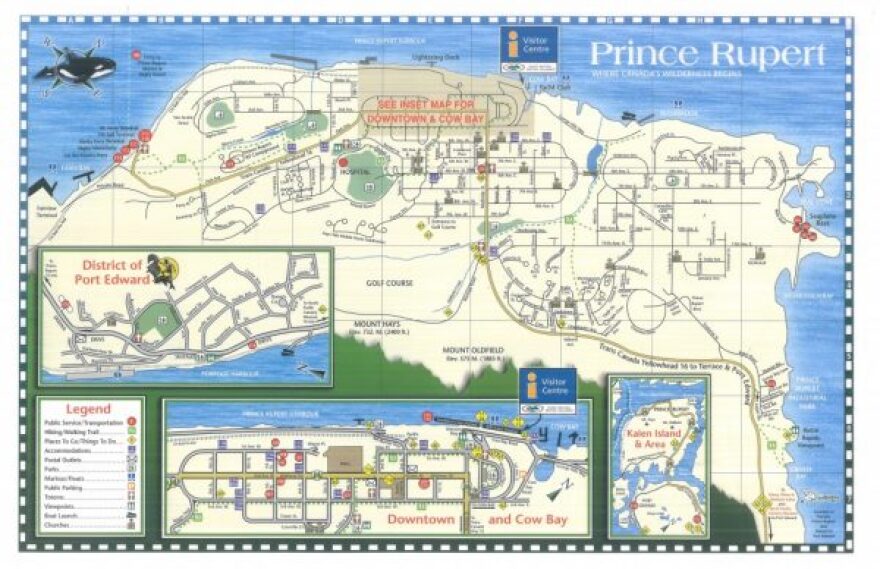Alaska’s cash-strapped ferry system may soon pay the wages of Canadian police in order to maintain its connection to British Columbia. The arrangement is in response to a demand by U.S. customs agents for armed back up.
Passengers and vehicles boarding Alaska ferries in Prince Rupert, B.C. are routinely checked by U.S. agents. They call it pre-clearance. And it’s so passengers won’t have to flash IDs in Ketchikan or wherever they get off the ferry.
But those U.S. Customs and Border Protection agents checking passports and looking for contraband in Canada are unarmed.
“It’s a sovereign nation and we don’t have that authority,” said Jerry McGee, the federal agency’s assistant area port director in Anchorage.
McGee noted that hunting rifles and shotguns are legal in both countries and often in the possession of the traveling public.
“Therefore, theoretically our staff would be the only ones that are not armed,” McGee said.
It’s been like that for decades. But policy makers in Washington apparently aren’t comfortable with the status quo.
The Alaska Marine Highway System was put on notice on March 15: either ensure that armed Canadian police are present during inspections or shut down the port in 30 days.
The ferry system’s General Manager John Falvey said the feds were clear.
“You gotta have, you know, armed protection for our officers,” Falvey said he was told. “So I went to work pretty quickly and determined that that was going to be very difficult to do. And the commissioner went back and requested an extension and we got it.”
That bought the state six months with an October 1 deadline.
Prince Rupert has no police force of its own. The city of 12,000 people relies on the Royal Canadian Mounted Police, Canada’s federal law enforcement agency.
“And you know where they’re at max capacity as I understand it right now,” said Paul Vendittelli, manager of economic development and transportation for the city of Prince Rupert.
He says losing the Alaska ferry would be a blow to Prince Rupert with estimates the ferry service brings in about $2 million to its local economy.
“We have about 14,000 passengers that use the Alaska marine highway,” Vendittelli said. “It’s a very big deal for us and a service that we don’t want to lose.”
So far, the solution being floated is for the state of Alaska to contract RCMP officers to stand by as armed backup while U.S. agents work.
“I’ll have to pay them for their services,” Falvey said. “They just don’t come in and do it for free.”
How the state ferries will afford this isn’t clear. The state legislature is finalizing an austere budget that already projects deep cuts to service at all levels.
By contrast, U.S. Customs and Border Protection commands a $20 billion budget and is expanding. Will the feds pick up the check?
“They never offered,” Falvey said. “You’d think they would have offered maybe — but no.”
Alaska transportation officials plan to write up a contract this summer. Falvey said the details haven’t been finalized.
“I don’t think it’s going to be a large sum of money,” Falvey said. “I mean, we look at something like this as the cost of doing business.”
An agreement allowing U.S. agents to carry sidearms at Prince Rupert is in the works. But officials on both sides of the border say that’s still several years away.


